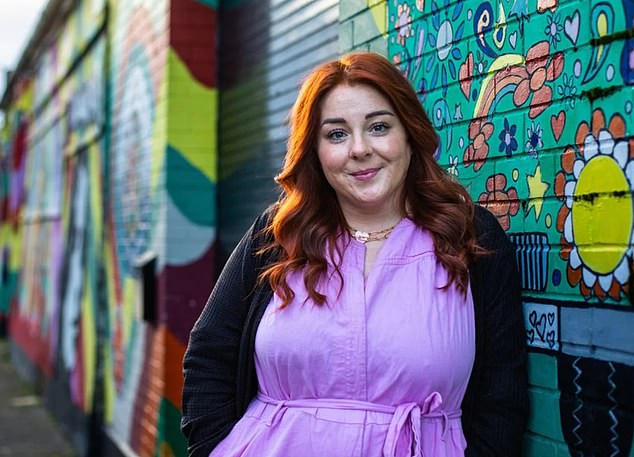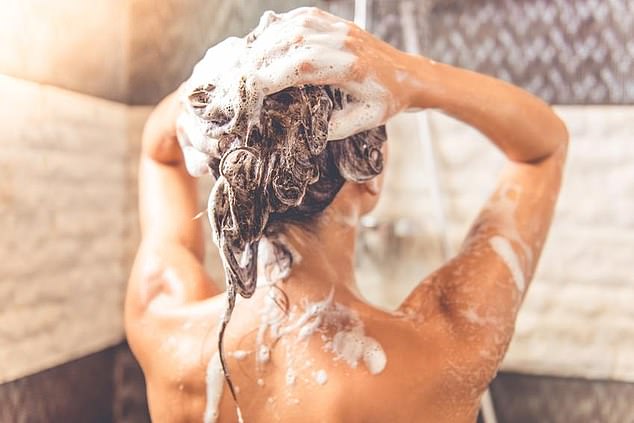It’s the eternal question every woman wrestles with: exactly how often should I wash my hair? General consensus used to be as little as possible, which might be practical, but does unfortunately mean looking like a bedraggled rodent.
Truthfully, appearance is one of the least important elements. The regularity of hair washing has a huge impact on scalp health, and failing to get it right can lead to issues from dandruff to skin infections. Yikes.
So in an effort to get our own hair-washing routine nailed down, we spoke to Claire Fullam, a clinical trichologist (a specialist in the treatment of hair and scalp disorders), owner of specialist hair clinic Trua and founder of Remi scalp care.
And honestly, we learned more about the science of hair washing than we ever thought possible. Keep reading to find out exactly how often you should be lathering up your locks, whatever your hair type, age or activity level.

Claire Fullam, owner of Trua clinic and the founder of Remi haircare
What factors impact how often you need to wash your hair?
‘How often you need to wash your hair is largely down to the oiliness of your scalp,’ Fullam explains, ‘and that depends on how many follicles and sebaceous glands you have.’
‘If you have fine hair that’s quite wispy, you are someone with around 150,000 follicles on your scalp. Attached to each of these follicles is a sebaceous gland. In contrast, if you have thick, curly hair, you likely only have around 80,000 or 90,000 follicles, and therefore far fewer sebaceous glands. Redheads also tend to have thick strands and therefore fewer follicles, while blondes have more, finer hairs.’
‘So often people who look like they have more hair like redheads or those with textured locks actually have less hair – it’s just that theirs is thicker. There will always be exceptions, but the rule of thumb is that your hair-washing routine should be dictated by your follicle count.’
Which hair texture needs to be washed the most?
Fullam says the above explains why those with finer, thinner hair often need to wash their hair more than curly girls.
‘If you have thin hair and 150,000 follicles, you have many more sebaceous glands producing more oil on a daily basis. If you have curly or wavy hair, your glands produce less oil and therefore your scalp doesn’t get as dirty. You therefore probably don’t need to wash your hair as frequently.’

Claire Fullam says thick, curly hair needs to be washed less than finer hair due to oil production
Should you wash your hair as infrequently as possible?
If there’s one old wives’ tale Fullam is keen to put to bed, it’s that the longer you go without washing your hair, the better. ‘That is absolutely not true,’ Fullam says. ‘Like any part of your body, when your scalp is dirty, you wash it.’
‘People seem to think the “natural oils” your scalp produces will hydrate the end of their hair,’ she continues. ‘But oil can’t just jump from your scalp to the bottom of your strands, and the majority actually stays clogging up your scalp. If you don’t get rid of that oil, it can very quickly turn into bacteria. You’re putting yourself at risk of dandruff, dermatitis and skin infections.’
‘It doesn’t help that your scalp is a prime environment for bacteria, with dead skin cells, warmth and fungi. If I had my way, I’d encourage people to wash their scalp twice a day, like you do with your face. I know it’s not that easy given you need to consider your hair, not just your scalp, but certainly don’t ignore it if your head starts to feel oily.’
Can you just use either shampoo or conditioner for a ‘half’ wash day?
Lots of us will occasionally just shampoo or condition our hair, usually to speed up the process. But according to Fullam, this can actually be worse than skipping hair products altogether.
‘When you shop for shampoo, you should be thinking about your scalp,’ Fullam says. ‘That’s its main role, basically as a cleanser that removes dirt, oil and product build-up from the area.’
‘Conditioners and masks work on the lengths of your hair, so they’re where to shop based on appearance aims. So if you want shine, get a shine conditioner; or softer locks, a repair conditioner. That’s why the two steps are so important: they work in conjunction, but on different parts of your hair and head.’
What happens if you only use shampoo on your hair?
There’s a simple reason shampooing-only is so frowned upon, Fullam explains. ‘When you wet your hair, the cuticle – the outermost layer of the hair shaft that acts like a protective barrier – rises, a bit like opening the windows of a house.’
‘When your hair cuticles are opened, your hair is much more prone to breakage. That’s why your hair is 40% more likely to break when it’s wet compared to when it’s dry and the cuticles close. Brushing it, blow-drying it or even tying it up without smoothing the cuticles is a huge no.
‘What helps close those cuticles? Conditioner. It helps seal it back up and protect it from brittleness – a bit like applying moisturiser to your skin after a hot shower or shaving. When people say ‘I can’t use conditioner, it’s too heavy for my hair,’ it worries me, because neglecting it will damage their locks. You just need to experiment with lighter products instead.’
So how often should you wash your hair?
As a general estimate, Fullam says someone with lots of thin, blonde hair will likely need to wash their hair every other day at minimum. ‘Washing it more than that is not an issue,’ she reiterates.
‘For those with curly hair,’ she adds, ‘I’d recommend washing your hair twice a week. At the very least, I’d want a full shampoo and condition once a week, and a scalp wash with an exfoliating product midweek too.’
‘Unfortunately, at the moment I’d want everyone to be washing their hair more frequently because of the hot weather, which means you’ll be sweating profusely and creating an even warmer environment for bacteria to thrive. Even curly girls travelling and exercising in this heat should aim to wash their hair (and scalp) at least three times a week.’
How can I find out more about my ideal hair-washing schedule?
If you have specific scalp concerns or want a full MOT of your scalp health, consider booking a one-on-one scalp analysis with an expert trichologist like Fullam.












